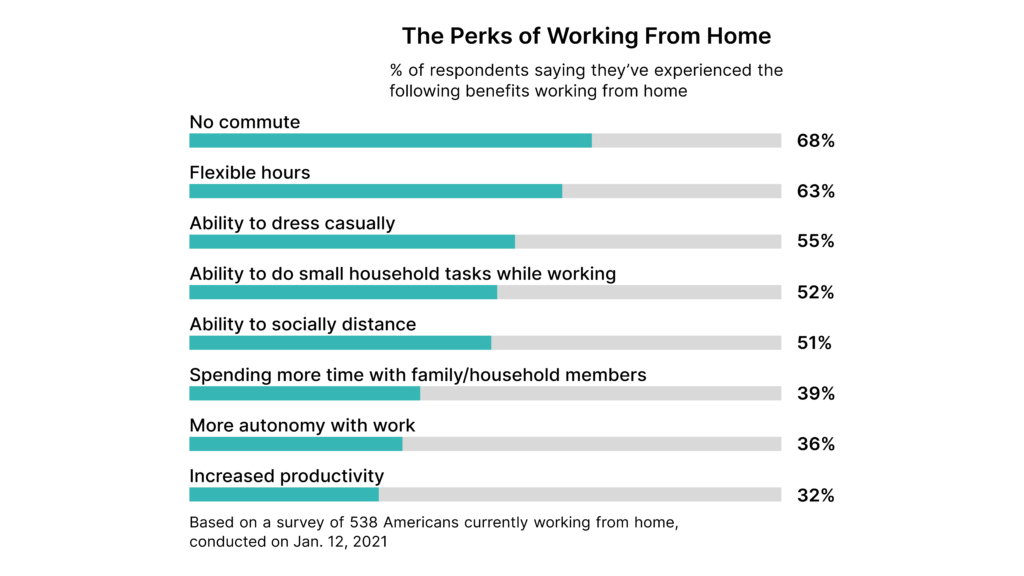Transformative Benefits of Remote Contact Centers

The concept of remote work has surged to the forefront in today’s dynamic and ever-evolving business landscape, reshaping the way organizations operate across various industries. Among the many sectors experiencing this transformation, remote contact centers have emerged as a powerful and adaptable solution, offering a multitude of benefits to businesses worldwide. In this article, we will explore the transformative advantages of remote contact centers, delving into how they harness the potential of advanced technology, reduce operational costs, and enhance workforce productivity. As we navigate the remote work revolution, it becomes increasingly evident that remote contact centers are not merely a response to a global crisis but a strategic choice that can empower companies to thrive in a new era of business operations.
- Hiring Flexibility
One of the main advantages of remote contact centers is the ability to hire agents in any geographic location. With remote contact centers, businesses can access a range of talent since they aren’t limited to employees near the office. This allows companies to select professionals with the skills needed to meet the specific needs of the business without limitations.
- Decreased Operating Costs
Studies indicate that businesses can save an average of $11,000 per year per part-time remote worker. By choosing a remote contact center, companies can save money and significantly reduce operating costs since they don’t need to invest in physical infrastructures such as facilities, equipment, and furniture or support additional expenses such as energy and water bills. These savings can then be directed to other strategic areas of your business.
- Increased Productivity
A survey from CoSo revealed that 77 percent of remote employees believe they are most productive when working from home. The absence of common distractions in the office, such as side conversations and frequent interruptions, allows agents to better focus on their tasks. Remote work also offers greater autonomy and flexibility, which can result in increased employee motivation, satisfaction, and productivity.
- Scalability and Adaptability
With remote contact centers, companies can scale up or down to fit changing business needs. During busy periods, such as holidays or special promotions, companies can hire temporary agents to respond to increased call volumes. During slower periods, companies can reduce staff without the need for layoffs. This flexibility ensures that companies can adapt to seasonal changes without neglecting the quality of the customer experience.
- Business Continuity
Remote work offers companies greater resilience during emergencies such as natural disasters, pandemics, and other unpredictable events. Because agents can work safely from homes without needing to travel or risk exposure, companies can ensure the continuity of their customer service, even in adverse circumstances.
- Decreased Turnover Rates
It’s no secret that high turnover rates are characteristics of the industry. According to a study from Gitnux, 74 percent of employees say having the option to work remotely makes them less likely to leave the company. Companies can save money by reducing the costs of hiring and training new agents and preventing the contact center from running understaffed, leaving sales calls unanswered, and losing potential revenue.
- Cost Savings
Perhaps the most obvious benefit of remote call centers is that you can significantly reduce your costs. You’ll no longer have to pay for real estate — or, if you choose a hybrid model, you can stagger schedules so that you can lease a smaller office space. You’ll also save costs on office furnishings, hardware, IT infrastructure, and other overheads. And, if you’re a growing business, you’ll be able to expand your contact center at any time without having to relocate to a larger space.
- Larger Talent Pool
Remote call centers can help you thrive in a tight labor market by increasing the applicant pool you can draw from. Rather than relying on local talent, you can handpick the best talent from around the world. You can recruit call center agents from the various regions you serve so that they can speak the local dialect and connect with your audience on a deeper level. You can also recruit contact center agents in different time zones so you can serve your customers 24/7.
- Increased Job Satisfaction
Giving your employees the ability to work remotely will increase their job satisfaction — they’ll spend less time commuting and will have more time to manage their personal lives. If you keep your employees happy, they’ll be more eager to go above and beyond for your customers.
- Reduced Turnover
In today’s labour market, workers are changing jobs on a massive scale. According to a recent survey, 52% of US workers are thinking about starting a new job this year. This “reshuffle” has made it more challenging than ever to keep top talent. And call centers weren’t exactly known for high retention rates to begin with.
Turnover is one of the biggest costs you’ll face as a contact center manager. It’s expensive to constantly train new agents and teach them about your products or services and sales processes. Turnover also leaves your contact center understaffed, letting sales calls go unanswered and costing you revenue.
- Greater Staffing Flexibility
Maintaining proper call center staffing can be a constant challenge, especially for companies that have seasonal peaks in demand, such as lawn care or tax preparation. With remote agents, you have more scheduling flexibility and the ability to staff up as needed, making it easier to manage seasonal fluctuations.
- A Culture of Ownership
The best employees aren’t just taking directions from their managers, they’re actively engaged in the work they’re doing and holding themselves accountable for their results. When you allow your call center employees to work remotely, you’re giving them more autonomy and the opportunity to truly take ownership of the work they’re doing.
- Improved Performance with Virtual Coaching
One of the main concerns companies have about the transition to remote call centers is that it will be more difficult to coach agents. But conversation intelligence solves this problem, helping you become the Steve Kerr of the contact center.
Measuring Success in Remote Contact Centers
Transitioning to remote work in contact centers requires a robust system for measuring success and productivity. Key metrics include:
- Employee Engagement and Productivity
Measuring employee engagement and productivity is paramount in remote work environments. Utilizing tools such as desktop analytics can shed light on how remote teams allocate their work hours. This software provides insights into application usage, time spent on productive tasks, and potential distractions. Additionally, data sources such as time tracking tools and project management software help monitor remote team output and progress, offering key metrics like completed tasks, project milestones, and time allocation to specific projects. Regular employee feedback in the form of surveys and one-on-one discussions is another essential component. These insights offer an understanding of remote employees’ engagement levels and help address any challenges they might be facing.
- Cybersecurity
Remote work brings cybersecurity challenges, necessitating robust measures to protect sensitive data. Monitoring the use of Virtual Private Networks (VPNs) becomes crucial, as these tools encrypt internet connections and safeguard data. Ensuring that remote employees are using secure and approved VPN services is imperative. Implementation of Multifactor Authentication (MFA) adds an extra layer of security, requiring multiple forms of identification for access. Conducting security audits at regular intervals helps identify vulnerabilities and ensures that remote employees adhere to security protocols.
- Customer Experience
For remote customer service and support teams, maintaining a high level of customer experience is paramount. To measure and enhance customer experience, organizations must collect feedback through surveys or post-interaction reviews. This feedback provides insights into the quality of service delivered by remote agents. Additionally, performance metrics such as response times, issue resolution rates, and customer satisfaction scores offer valuable data on the effectiveness of remote customer service teams. Ensuring that remote agents have access to training and support is also essential, as it enables them to meet customer service standards. Regular training sessions and access to knowledge resources can significantly improve their performance.
- Collaboration Tools and Communication
Effective collaboration and communication are pivotal for remote teams to work cohesively and efficiently. By monitoring the usage of collaboration tools such as video conferencing platforms, messaging apps, and project management tools, organizations can determine which tools are most frequently used and whether they effectively meet the team’s requirements. Gathering feedback from remote teams on the efficacy of these communication tools is equally important. This feedback helps identify challenges and areas in need of improvement. Evaluating how quickly remote teams can address and solve problems or issues is another essential aspect. It enables organizations to determine whether their communication tools facilitate quick and effective problem-solving, ultimately contributing to enhanced productivity and teamwork.
The transition to remote work in contact centers presents both challenges and opportunities. It requires careful planning, technology investment, and adaptation to management styles. By addressing these challenges and leveraging the opportunities, contact centers can continue to provide exceptional service while ensuring employee well-being and operational success in a remote work environment.

